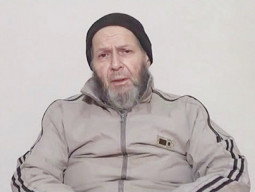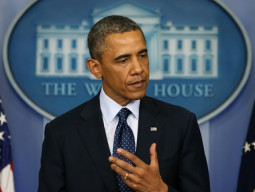
Like all other weapons systems, the drone, currently the weapon of choice for the United States in its war against terrorism, will also become common in future warfare. The first large-scale use of the gun as a weapon was in the late 18th century in the American War of Independence. Combined with the use of trenches, the rifle produced devastating results in the First World War. In the early 20th century, the tank and the armour carriers replaced the cavalry. Around the middle of the same century, the airplane lifted war from the ground to the air. Now comes the drone and its use will spread, especially among those countries that have the wherewithal to produce the machine. The Pakistanis, for instance, have announced that they have produced a drone of their own.
Although much of the information about the impact of the drone in the areas it has been used is classified in the United States — the only country to date to have deployed the weapon — some private groups have begun to gather and release the data regarding the number of casualties caused by drones.
While the debate on the pros and cons of the CIA’s drone programme never died down in the United States or in Pakistan — the country that was most often targeted — it picked up after a statement by President Barack Obama regretting the loss of two Western lives in an attack on a compound in Pakistan’s tribal areas. “It is a cruel and bitter truth that in the fog of war and our fight against terrorists specifically, sometimes mistakes can occur,” said the American president. “One of the things that makes us exceptional is our willingness to confront squarely our imperfections and to learn from our mistakes.”
The statement came on April 23, 2015 and concerned the deaths of an American aid worker, Warren Weinstein, and Italian Giovanni Lo Proto. I knew Weinstein well and had many conversations with him about the development programmes he was managing. The deaths occurred in an attack on January 15, more than four months before the president went public. The delay, it was said, was the result of the investigations that led to the conclusion that these men were indeed killed. The possible target of the attack were two senior al Qaeda officials. One of them, Ahmed Farouq, was also an American citizen and was now high up in the al Qaeda hierarchy. He was playing a leading role in an al Qaeda franchise in India.
The critics of the programme were concerned about the deaths of civilians who were not the intended targets. The loss of two men who had gone to Pakistan to help with economic and social development “were a disturbing reminder of the unintended consequences of an execution program of questionable legality”, wrote The New York Times in an editorial. The Obama Administration had sought to reduce the room for mistakes in 2013 when it instructed the Central Intelligence Agency (CIA), which authorised the strike in which the aid workers were killed, to make sure with “near certainty” that imminent strikes would not put civilians in harm’s way. That may have been the policy but the results were on many occasions different. President Obama has promised an independent review of the January attack.
Another New York Times report provided details about how members of Congress were being kept informed about the drone programme operated by the CIA. “About once a month, staff members of the congressional intelligence committees drive across the Potomac River to CIA headquarters in Langley, Virginia and watch videos of people being blown up. As part of the macabre ritual the staff members look at the footage of drone strikes in Pakistan and other countries, and a sampling of the intelligence buttressing each strike, but not CIA cables discussing the attacks and their aftermath.”
It is of considerable significance that in the debate in the United States on the morality of the drone programme, the question of violating the territory of sovereign nations never comes up. This was the main issue raised by Imran Khan and his party leading up to the elections of May 2013 and will remain at the centre of the debate in Pakistan.
Published in The Express Tribune, May 4th, 2015.
Like Opinion & Editorial on Facebook, follow @ETOpEd on Twitter to receive all updates on all our daily pieces.

































































COMMENTS (4)
Comments are moderated and generally will be posted if they are on-topic and not abusive.
For more information, please see our Comments FAQ